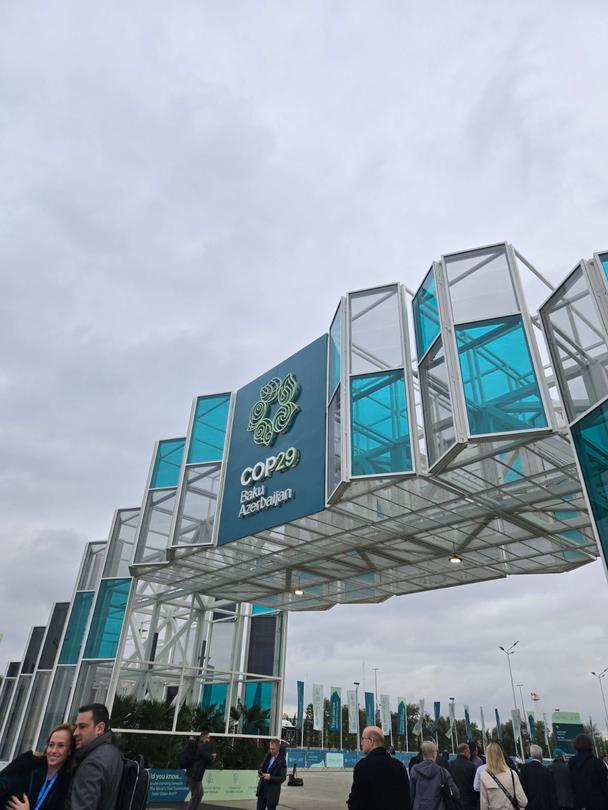COP29 enters decisive phase of negotiations to secure a climate-neutral future
19 Nov, 2024 | 16:01The second crucial week of the 29th Conference of the Parties to the United Nations Framework Convention on Climate Change (COP29) began on Monday in Baku, Azerbaijan, and is scheduled to continue until 22 November.
The first week of COP29 saw formal and informal negotiations and discussions in the subsidiary bodies of the United Nations Framework Convention on Climate Change (UNFCCC). As part of this process, country experts developed working documents and texts that bring together the positions of individual negotiating blocs of countries, which are subsequently submitted for coordination and final negotiations at the political level.
Expert discussions in the negotiation rooms this year were extremely intense, often lasting until the little hours of the night. The reasons for this include the mandate of COP29 as a conference dedicated to climate finance. The world expects countries to agree on the so-called New Collective Quantified Goal on Climate Finance to build on the achieved target of mobilizing $100 billion per year for mitigation and adaptation in developing countries. The needs for measures and investments, estimated at trillions of dollars per year, far exceed the financial resources available through public funding mechanisms, so financial contributions are sought from more countries, international financial institutions, and private capital.
The European Union and most developed countries are also pushing for stronger commitments in negotiations on the implementation of the mitigation and just energy transition goals agreed in Dubai at COP28 a year ago. At that time, countries agreed to triple installed renewable energy capacity and double the pace of energy efficiency measures by 2030, limit methane emissions, and phase out fossil fuels to achieve climate neutrality by 2050, among many other goals.
Intensive negotiations are also underway on Article 6 of the Paris Agreement, which establishes a voluntary cooperation mechanism that allows countries to transfer part of their contribution to reducing greenhouse gas emissions among themselves. Reaching agreement on the mechanism is particularly important for the implementation of effective and nature-based solutions for carbon sequestration from preserved and restored ecosystems. However, it is necessary to ensure transparency and accountability of the mechanism to achieve investment efficiency and a sustainable result in terms of reduced emissions.
After the end of the first week of COP29, it became clear that the progress made in expert-level negotiations on these and other topics, including women’s empowerment, technology transfer and indicators for future actions and adaptation plans, did not ovecome fundamental differences between the positions and expectations of the parties.
Many developing countries are pushing for a substantial increase in financial flows from developed countries without a firm confirmation of the targets agreed in Dubai. For their part, the European Union and other developed countries cannot guarantee a significant increase in climate finance without a strengthened ambition for mitigation and clarity on the long-term commitment of major G20 economies and other emerging economies to the new financial target and the objectives of the Paris Agreement.
The next stage of COP29 will be high-level negotiations and consultations, led by pairs of ministers from developed and developing countries, aiming to reach consensus on the most serious disagreements and open issues. Updated negotiating texts, including a draft decision on the New Collective Quantified Goal on Climate Finance, are expected to be published by the end of the day on Wednesday (21 November).
COP29 will not finalize the negotiations on some of the topics on the conference agenda, which started in Dubai and concern progress in implementing the goals of the Paris Agreement. The troika of host countries of COP28, COP29, and COP30 – the United Arab Emirates, Azerbaijan, and Brazil – are committed to coordinating their efforts within the framework of the so-called “Mission 1.5”. It aims to encourage additional efforts by countries in order to maintain the possibility of achieving the ambitious goal of limiting the increase in global temperature to below 1.5 degrees Celsius.
The negotiating team of the Ministry of Environment and Water, led by Svetlana Zhekova, Vice-President of the UNFCCC Bureau and Co-Chair of the Eastern European Group (EEG) for 2024, is actively working with the delegations of the European Union countries, the European Commission, the Hungarian Presidency of the Council of the EU, and within the EEG to achieve ambitious and balanced results from COP29.
